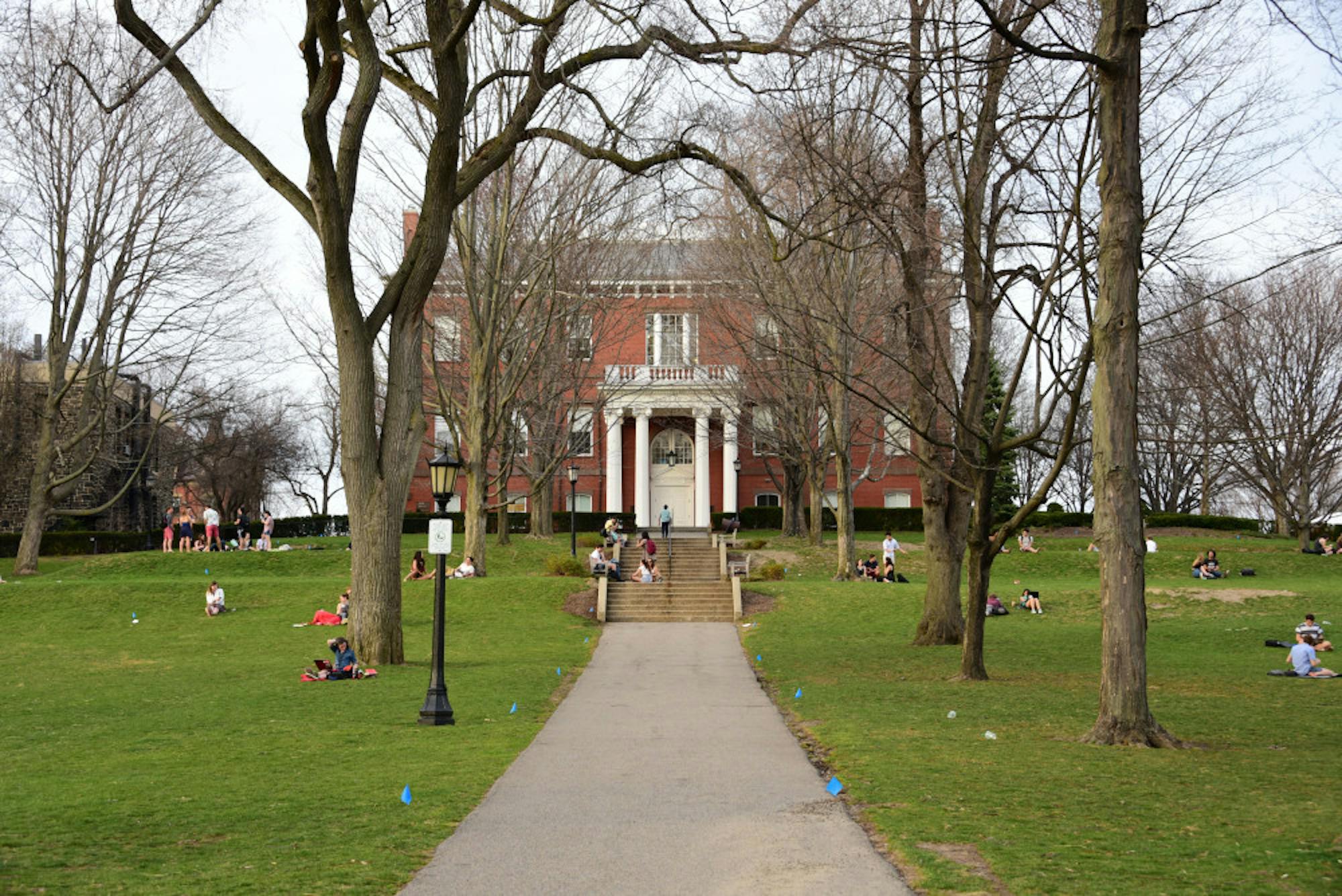The Tufts Lawyers Association and Tufts Career Center partnered to invite alumni and interested students to attend the 18th Law Day on the Hill last Thursday evening in the Alumnae Lounge.
The annual event allowed current students to explore career prospects in law and learn from alumni who work in the field. After hearing from a panel of alumni, who shared their journeys and thoughts on current issues in constitutional and electoral law, students had the opportunity to network and speak with alumni one-on-one.
The panel this year included Kevin Lownds (LA'09), a managing attorney at the Massachusetts Attorney General’s Office; Stephen Wermiel (LA'72), a professor of practice of law at the Washington College of Law at American University;Matthew Shapanka (LA'09), an associate attorney at Covington & Burling LLP, and Patrick Roath (LA'09), former deputy policy director for Deval Patrick's presidential campaign, Deval for All.
Andre Baynes (LA’91), the co-chair of Law Day on the Hill and a senior legal counsel at Fidelity Investments, introduced the panel. After sharing the alumni's profiles, Baynes asked each panelist to speak about the journey to their current position. Baynes also asked the panelists to impart advice to current students.
Lownds, the first panelist to speak, advised students to experiment with different types of law while embarking on their paths, as he did.
“It is difficult when you're in law school to identify an area particular of the law that is going to be a useful focus for you," Lownds said. "It is useful during law school to go to the firm and try different types of law.”
Wermiel, the second panelist, shared a different approach—he first spent time as a journalist covering the Supreme Court while attending law school at night; he went on to teach law, deciding eventually to continue his role as a law professor.
“I was energized by students, still am — so I switched to teaching law, which I have been doing for the last 30 years,” Wermiel said.
Shapanka, the third speaker, shared that he knew he wanted to go into law since he was 12, and stated that after studying at Harvard Law School, he now works to prevent election fraud, among other duties.
“I went to a law firm that had a practice in election law," Shapanka said. "I got an opportunity to be where the action was and got paid for it. So, I graduated law school, I came back to work in a firm and I was fortunate enough to work in those practice groups."
Roath, the fourth panelist, discussed his trajectory working for former Massachusetts Governor and 2009 commencement speaker Deval Patrick, and he explained how he came to view obtaining a law degree as an outlet for developing a diverse set of skills that allows entry into various career paths.
“It seemed like getting a law degree gave you the opportunity to have your profession, develop your own skillset, go in and out of the law practice, maybe do government or public service and do different things with it," Roath said. "So I took the risk of going to law school and really liked it a lot.”
The panelists then proceeded to share their thoughts about the prospect of taking time off and gaining work experience before pursuing a law degree. All the panelists, even those who did not take time off, shared that they view taking time off as extremely beneficial.
“I took two years, and for me that was the right decision," Roath said. "I just wasn’t sure. [Law School] was in my head, but I wasn’t sure I wanted to do it. I needed to get out in the world, have a year or two, and see what the other options were."
After discussing the prospect of taking time off before attending law school, the discussion then opened to field students’ questions for the panel.
One student asked how the panelists' personal opinions factor into their careers and how they juggle their personal views with their assignments.
“The short answer is politics is involved in anything," Shapanka said. "You can [have] the best policy and the best plans, but you have to have some plan to navigate the politics of state legislature, congress, interest groups, etc. You have to know everyone's interests and how to compromise."
SophomoresJoshua Hochberg and Katherine Stiplosek attended Law Day to learn more about the diverse career paths within the field and to gather advice from the array of panelists.
“I thought it was very interesting to hear different paths people took getting into the legal industry and going to law school," Hochberg said. "It was great to hear about all the different options that exist.”
“The idea of law stretches into so many arenas and I want to be a lawyer, but I do not completely know what that means," Stiplosek said. "Attending Tufts Law Day is an opportunity to see first hand what being a lawyer is and what daily life for different lawyers looks like and all the fields that law extends into."
Law Day on the Hill attracts alumni, students for discussion on contemporary issues

Ballou Hall is pictured on April 11, 2017.





